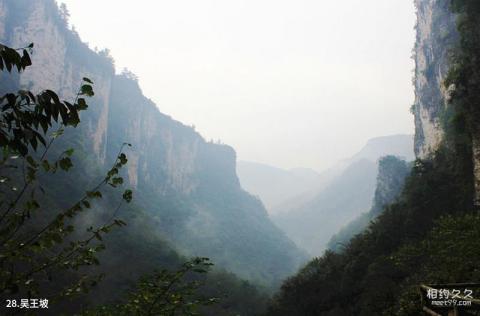
Introduction to Wuwangpo: Looking into the distance from the line of sky, you can see a cliff, and behind it is Wuwangpo Village. According to legend, Li Zicheng was defeated in Beijing with the aura of Emperor Dashun and then moved to the Qinling Mountains. He crossed the Yellow River and the Yangtze River successively, and went south to Xiangxi. In the end, he was unable to save himself, so he was defeated and retired to Jiashan Temple in Shimen County, Changde. Convert to Buddhism. Wuwangpo Village opposite is one of the ancient battlefields where Wu Sangui pursued Li Zicheng and fought a life-or-death battle with the rebel army. Legend has it that Wu Sangui defeated Li Zicheng's rebel army here and killed thousands of rebels. It was one of the "evil battles" in Wu Sangui's life. The local descendants of the Tujia people named the village "Wuwangpo" based on this historical legend. The name of Wu Wangpo Village is also called Wu Mangpo. "Mie" means "annihilation". That is to say, although Wu Sangui took control of Yunnan after winning this battle and was named "Pingxi King", he ended up in the "San Francisco Rebellion". perished. The cause and turning point of the demise, in the eyes of the local people, lies in Wuwangpo. Therefore, Wu Wangpo has the deductive component of the name "Wu Suipo".
